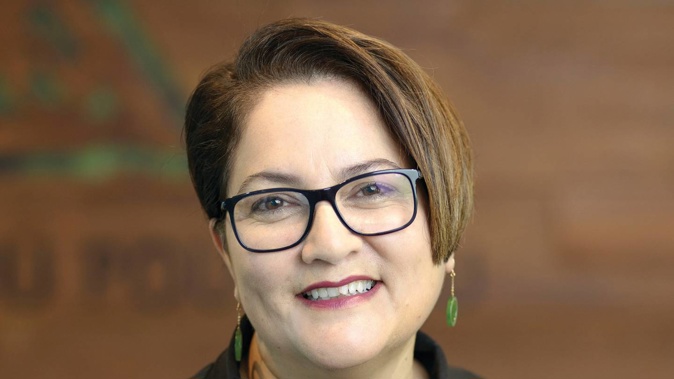
Last month I had the privilege to take a glimpse into the future.
Our iwi is making bold moves to transform an iconic Kiwi experience into a world-first – the Shotover Jet is going electric and I couldn't be prouder.
Clever engineering and innovation from Ngāi Tahu Tourism is turning a fossil fuel hungry V8 jet boat into one that travels lightly and quietly on electric batteries.
The Shotover Jet conversion is a wonderful example of how our resilience and innovation can turn climate challenges into opportunities. Climate need not be all doom and gloom and I see a bright future ahead for our whānau if we boldly carry on along this road.
When I saw the prototype jet coming stealthily and silently up the Kimiākau Awa, it was so different from the roaring V8 engines it will replace, and I saw this as an interesting analogy for climate change.
Climate change is a global threat, coming towards us in Aotearoa and in our own takiwā a little like the jet boat, quickly and without a lot of noise. It is difficult to understand until it actually arrives.
Perhaps that explains the strange place we find ourselves in, where many of us accept the science but are having trouble understanding the consequences.
Although the days of climate denial are well behind us, thank goodness, there is still a big group of the population crossing their fingers, putting their hands over their ears and humming a happy tune.
Our iwi has the resources and influence to do more than this. We want to make things better for future generations. We want our mokopuna to thrive and to maintain strong connections to our beautiful natural world.
The more dire the predictions from the Intergovernmental Panel on Climate Change (IPCC) become, the more some of us have been hoping that the experts are wrong. But we can not hide anymore.
One of my jobs as Kaiwhakahaere is helping whānau to understand and accept how widespread and comprehensive the effects of climate change are going to be.
Te Rūnanga o Ngāi Tahu has just released an 88-point action plan to tackle climate and related ecological issues. As part of the process we have made a video to bring home the local dangers of this global crisis.
In order to make the plan work we need to all understand that climate impacts are not limited to Australian wildfires and Pacific atolls going under, as serious as they are for our cousins who live there.
Impacts are already being felt close to home, in our own backyards. Take the recent heavy flooding in Ōtepoti (Dunedin) and Waitaha (Canterbury) as an example, where roads were once again cut off and communities were forced to evacuate. We have to understand that climate change will come to affect every single family in Aotearoa.
In order to protect our own whānau, both now and in the future, we will need to act fast.
The video outlines some of the places across our takiwā already in the frontline. The glaciers of the Southern Alps, the threats to mahinga kai (customary food gathering), the ūrupa (graveyards) crumbling into the ocean at Moeraki, the marae at Taumutu on the shores of Te Waihora that has to be evacuated at high tide in a storm.
We are a coastal people and 16 out of our 18 marae are at risk from flooding and rising sea levels. As we can see from the testimonies of our people – the danger is clear and present.
Across the ditch tens of thousands in and around Sydney have been forced from their homes by torrential rain and flooding. La Nina exacerbated by climate change has seen some areas getting a year and half's rainfall in just four days.
If we keep our hands over our ears it would be easy to regard these reports as extreme "one in a hundred year" events. But we need to note how often these one in a hundred year events are happening.
That's why one of the main planks of our action plan Te Kounga Paparangi involves empowering our marae to be resilient and self sufficient and to act as civil defence centres and climate refuges, when, not if, these extreme weather events come visit us.
I hope we can all come together now to cast aside our fears and take action.
Take your Radio, Podcasts and Music with you









